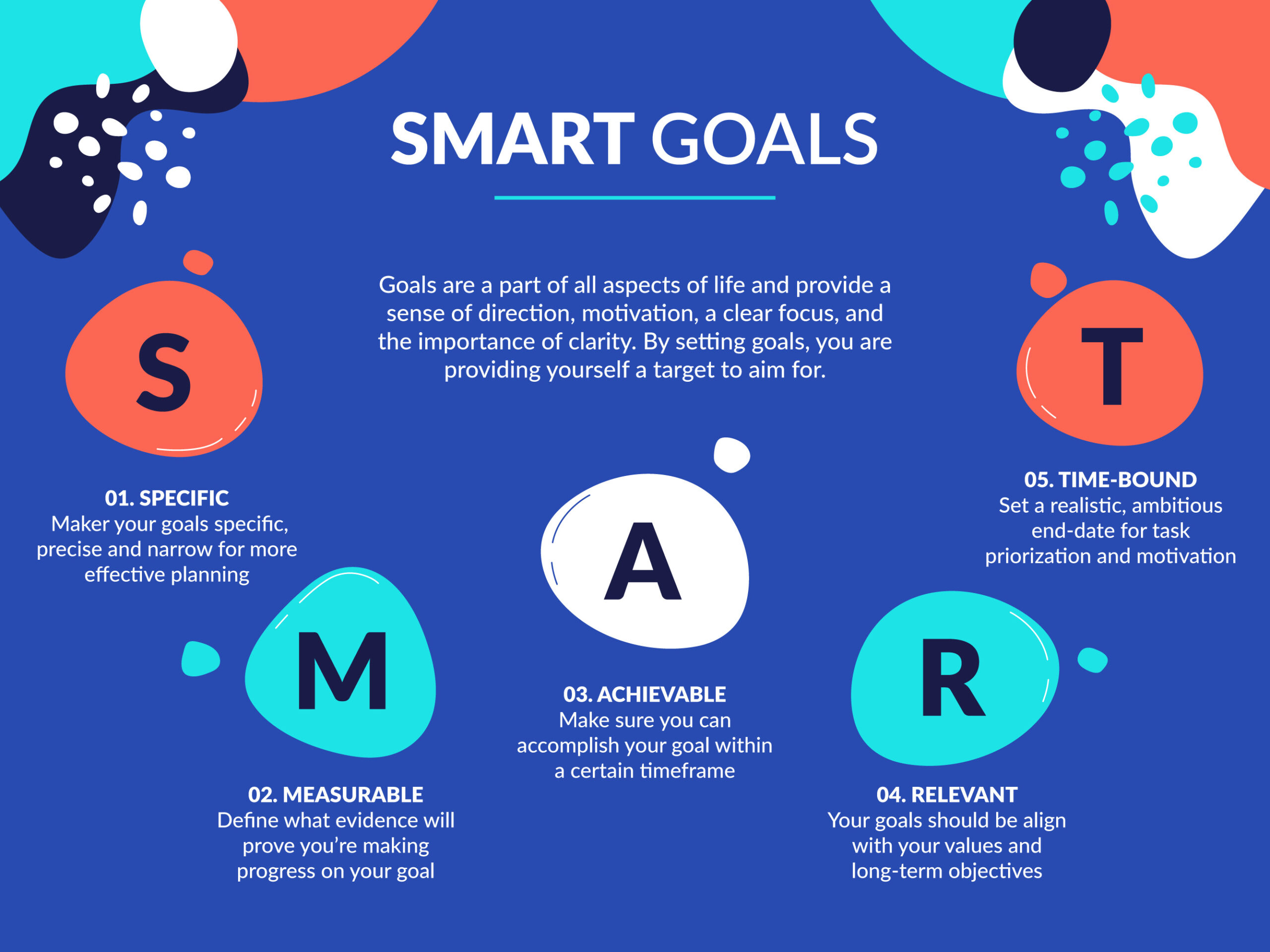In today’s fast-paced business environment, setting goals isn’t just a necessity—it’s a strategic imperative. Enter SMART goals, a framework that stands for Specific, Measurable, Achievable, Relevant, and Time-bound. This method ensures that objectives are clear and attainable within a certain timeframe, making them a powerful tool for both personal and professional development. This post delves into Smart Goals Management, offering insights and practical tips to harness its full potential.
Understanding SMART Goals
The Essence of Specificity
When we talk about Specificity in Smart Goals Management, we mean leaving no room for ambiguity. A specific goal has a much greater chance of being accomplished than a general one. For instance, “increase sales” is too vague. Instead, “increase sales by 15% in the next quarter” is a specific goal. Specificity sets a clear direction and allows for focused efforts.
Measuring Success Accurately
Measurement is crucial in Smart Goal Management because it provides tangible evidence of progress. Without measurable criteria, it’s challenging to determine whether you’re on track to meet your goals. A goal should include precise amounts, dates, and other details to measure your degree of success. For example, “lose weight” is not a measurable goal, but “lose 10 pounds in three months” is.
Achievability and Realism
Setting Realistic Goals
In Smart Goals Management, it’s important to set goals that are realistic and attainable to avoid discouragement. Achievable goals motivate employees and foster a sense of accomplishment. It’s about setting a goal that challenges you but remains possible. For example, aiming to run a marathon in a month without prior training is unrealistic, but running a 5k in the same timeframe might be achievable.
Relevance: Aligning Goals with Broader Objectives
Relevance ensures that the goals you set matter to you and your organization. In Smart Goals Management, goals should align with other relevant goals. Setting relevant goals keeps you focused and drives progress. For instance, a goal to improve customer service skills is relevant for a customer support representative but might not be for a software developer.
The Importance of Time-Bound Goals
Creating a Sense of Urgency
Time-bound goals are essential in Smart Goals Management because they create a sense of urgency and prompt you to take action. A deadline helps you stay focused and motivated. It also enables you to track progress and stay on schedule. For example, committing to “submit the project by the end of the month” creates urgency compared to simply “submit the project.”
Avoiding Procrastination
Deadlines in Smart Goal Management help combat procrastination. When a goal is open-ended, it’s easy to delay necessary actions. A time-bound goal forces you to plan and prioritize tasks effectively. This approach ensures steady progress and timely completion of objectives.
Implementing SMART Goals in Your Organization
Communicating Goals Effectively
Effective communication is key to Smart Goals Management. Clearly articulated goals ensure that all team members understand what is expected of them. Use tools like project management software to track progress and maintain transparency. Regular check-ins and updates help keep everyone aligned and accountable.
Encouraging Team Collaboration
Smart Goals Management thrives on collaboration. Encourage team members to share their goals and progress. Collaborative efforts often lead to innovative solutions and a stronger commitment to achieving the set objectives. Teamwork also provides support and fosters a culture of mutual success.
Overcoming Common Challenges
Handling Goal-Setting Anxiety
Setting goals can sometimes be overwhelming. In Smart Goals Management, breaking down larger goals into smaller, manageable tasks can alleviate anxiety. This approach makes the process less daunting and allows for steady progress.
Staying Flexible and Adaptive
Even with the best-laid plans, circumstances can change. Smart Goal Management requires flexibility. Be prepared to adjust your goals as necessary. This adaptability ensures that you stay relevant and continue to make progress despite unforeseen challenges.
Leveraging Technology for Smart Goals Management
Using Goal-Tracking Tools
Technology plays a significant role in Smart Goals Management. Numerous digital tools can help you set, track, and achieve your goals. These tools provide visual progress indicators, reminders, and analytics to keep you on track.
Integrating Automation
Automation can streamline many aspects of Smart Goal Management. Automated reminders, progress tracking, and reporting free up time and ensure that you never miss a deadline. Leveraging technology can significantly enhance your goal-setting and achievement process.
Real-Life Examples of SMART Goals Success
Case Study: Corporate Achievements
Many successful companies have embraced Smart Goals Management to drive their growth. For example, a retail chain might set a SMART goal to “increase online sales by 20% over the next six months through targeted marketing campaigns.” This specific, measurable, achievable, relevant, and time-bound goal provides clear direction and accountability.
Personal Development Success Stories
Individuals also benefit from Smart Goals Management. Consider someone aiming to “complete a professional certification within one year to advance their career.” This goal is specific, measurable, achievable, relevant, and time-bound, providing a clear roadmap for personal growth.
The Future of Smart Goals Management
Evolving Strategies
The landscape of Smart Goals Management is continually evolving. As organizations and individuals face new challenges, the strategies for setting and achieving goals must adapt. Staying informed about the latest trends and best practices ensures that your approach remains effective.
Continuous Improvement
Smart Goals Management is not a one-time activity but a continuous process. Regularly review and refine your goals to ensure they remain aligned with your evolving priorities. Continuous improvement in goal-setting practices leads to sustained success and growth.
Conclusion
Mastering Smart Goals Management is crucial for achieving both personal and professional success. By setting Specific, Measurable, Achievable, Relevant, and Time-bound goals, you can create a clear path to your objectives. Embrace the principles outlined in this post to enhance your goal-setting practices and drive meaningful progress.











